Conference Honorary Chair
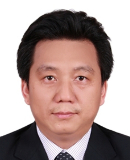
Prof. Weihong Zhu
Academician of Chinese Academy of Sciences, Vice President of East China University of Science and Technology, Director of Institute of Fine Chemicals, East China University of Science and Technology. Professor of Chemistry, Cheung Kong Distinguished Professor, and NSFC Distinguished Young Scholars.
Bio: Prof. Weihong Zhu received his Bachelor degree of Chemistry in 1992 from Nanjing Normal University, Master degree of Organic Chemistry in 1995 from Nankai University, PhD degree of Applied Chemistry in 1999 from East China University of Science & Technology (ECUST), China. He worked in AIST Central 5, Tsukuba (Postdoctoral, 2001.10-2003.4) and in Tsukuba University (visiting professor, 2004.7-2005.3), Japan. He became a full professor in 2004,...more...
Areas of Expertise: Photosensitized chemical products with functional chromophores, including fluorescent sensors, photochromism, and hole-transporting materials (HTMs) for solar cells.
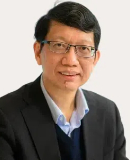
Prof. Shandong Tu
Academician of Chinese Academy of Engineering, Professor of East China University of Science and Technology, President of the University Science Association, Former Vice President of East China University of Science and Technology.
Bio: Prof. Shandong Tu graduated from Nanjing Institute of Chemical Technology in 1982, majoring in chemical machinery, and received his M.E. and Ph.D. degrees in chemical process machinery from Nanjing Institute of Chemical Technology in 1985 and 1988, respectively. From 1989 to 1990, he worked as a postdoctoral researcher in the Institute of Mechanics, Southwest Jiaotong University; from 1990 to 1993, he was invited to be a guest researcher at the Royal Institute of Technology, ...more...
Areas of Expertise: Safety technology for high temperature and high-pressure chemical equipment.
Honorary Chair of Academic Committee
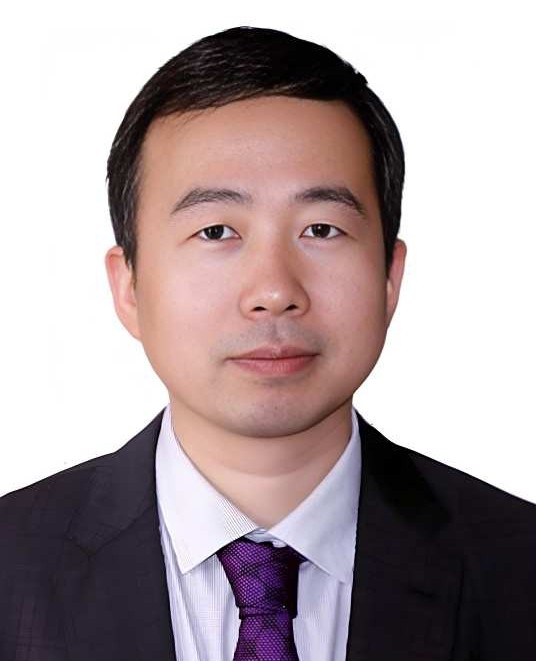
Prof. Jianzhong Du, School of Materials Science and Engineering, East China University of Science and Technology, China
Dean of School of Materials Science and Engineering, East China University of Science and Technology, China; Distinguished Youth Scholars of China in 2019; Fellow of the Royal Society of Chemistry
Bio: He obtained his Ph.D. from the Institute of Chemistry, Chinese Academy of Sciences in 2004. From 2004 to 2010, he worked as a postdoctoral researcher at the Department of Chemistry, University of Sheffield, UK, and the Department of Chemistry, University of Cambridge, UK. In 2006, he was awarded the Humboldt Research Fellowship (Humboldt Fellow) by Germany. Since 2010, he has served successively as Distinguished Eastern Scholar Professor, Long-term Distinguished Professor, ...more...
Areas of Expertise: Electronic information materials, Polymer chemistry and physics, Biomedical materials, Artificial intelligence-assisted materials design and synthesis
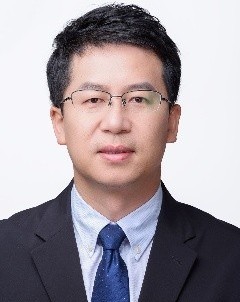
Prof. Xiang Ma, School of Chemical and Molecular Engineering, East China University of Science and Technology, China
Dean of School of Chemical and Molecular Engineering, East China University of Science and Technology; Distinguished Youth Scholars of China in 2021, Fellow of the Royal Society of Chemistry (FRSC)
Bio: Xiang MA received his B.S. degree in Chemical Engineering and Technology from Tianjing University (Tianjing, China) in 2003. He received his Ph. D. degree in Applied Chemistry from East China University of Science & Technology (ECUST) (Shanghai, China) in 2008 under the direction of Prof. He TIAN (member of the Chinese Academy of Science) at the Institute of Fine Chemicals at ECUST. Dr. Ma worked as a Research Associate on hybrid gold nanomaterials at Liquid Crystal Institute at Kent State University (Ohio, US) from Jan. 2011 to Jul. ...more...
Areas of Expertise: Organic optoelectronic assembly materials based on functional dyes
Conference Chair
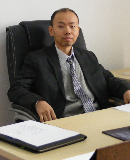
Prof. Xin Chen, School of Materials Science and Engineering, East China University of Science and Technology, China
Expert of Shanghai Talent Plan, Project review expert of Ministry of Science and Technology and Ministry of Education, Technology Award Review Expert of Shanghai and Guangdong Province.
Bio: Prof. Chen received his undergraduate degree in 1991 from the Department of Modern Applied Physics, Tsinghua University, and his Ph.D. degree in 2000 from the Department of Physics, University of Houston, USA. He worked in the State's Key Open Laboratory of Surface Physics of the Chinese Academy of Sciences, the NASA affiliated Center for Advanced Materials at the University of Houston, Peking University, and the University of ...more...
Areas of Expertise: Supercapacitor materials; Research and development of new nanomaterials with advanced microscopy techniques; New nanomaterials and devices
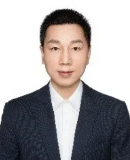
Prof. Guohua Xie, Institute of Flexible Electronics (IFE, Future Technologies), Xiamen University, China
Fellow of the Royal Society of Chemistry, Alexander von Humboldt Fellow
Bio: He received a Ph.D. degree in Microelectronics and Solid-State Electronics from Jilin University, China, in 2011. He was a postdoctoral researcher at the Institute of Applied Photophysics, Technische Universität Dresden, Germany, between 2011 and 2012; a postdoctoral researcher at the School of Physics and Astronomy, University of St Andrews, UK, from 2013 to 2015; Associate Professor at the School of Chemistry and Molecular Science, ...more...
Areas of Expertise: Novel light-emitting materials and devices: organic light-emitting materials and devices, quantum dot light-emitting materials and devices, chalcogenide light-emitting materials and devices
Conference Co-Chairs
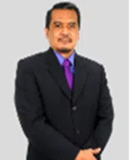
Prof. Ahmad Zuhairi Abdullah, School of Chemical Engineering, Universiti Sains Malaysia, Engineering Campus, Malaysia
Dean, Stanford World Top 2% Scientists
Bio: Professor Dr. Ahmad Zuhairi Abdullah is currently an academic member of School of Chemical Engineering, Universiti Sains Malaysia. He received his B. Tech (Hons), MSc and PhD in 1995, 2000 and 2004, respectively. His research works mostly encompass the synthesis of novel functionalized nanoporous materials as ordered catalysts in environmental catalysis, oleochemical reactions, agricultural waste treatments, waste utilization and the production ...more...
Areas of Expertise: Catalysis; Reaction; Fuel Engineering; Nanoporous Materials; Wastewater Engineering.
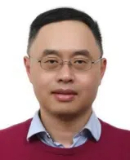
Prof. Haofeng Chen, School of Mechanical and Power Engineering, East China University of Science and Technology, China
Chair Professor of East China University of Science and Technology, Adjunct Professor of University of Clyde (UK), Fellow of American Society of Mechanical Engineers (ASME), Fellow of Institution of Mechanical Engineers (IMchE) (UK), Senior Foreign Scholar of State Funding Committee of China, Chang-Jiang Scholar Chair Professor
Areas of Expertise: Chemical/nuclear/aerospace equipment safety; High temperature structural integrity theory and numerical methods; Power battery safety; Computational solid mechanics
Publicity Chair
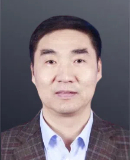
Prof. Tianpeng Gao, School of Environment and Urban Construction, Lanzhou City University, China
Director of Gansu Mining Area Pollution Control and Ecological Rehabilitation Engineering Research Centre, Director of Key Laboratory of Plant Adversity Physiology and Ecological Restoration of Xi'an City, Vice President of Lanzhou Smart City Research Institute, Vice President of Gansu Provincial Institute of Urban Development, Executive Vice-President of Academy of Eco Xi'an.
Areas of Expertise: Damaged ecosystem evaluation and restoration.
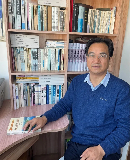
Prof. Guoquan Qian, School of Environment and Urban Construction, Lanzhou City University, China
Dean of Gansu Provincial Institute of Urban Development, Secretary General of Gansu Science and Technology Think Tank Alliance, Dean of Lanzhou Smart City Research Institute.
Areas of Expertise: Humanistic geography
Technical Committee Member
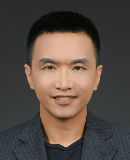
Assoc. Prof. Xi Liu, School of Chemistry and Chemical Engineering, Shanghai Jiao Tong University, China
Chang-Jiang Distinguished Professor
Areas of Expertise: Development of in situ transmission electron microscopy techniques based on catalysis and electrochemistry, Fischer-Tropsch synthesis and related catalytic reaction studies, construction of new structured nanomaterials and their applications
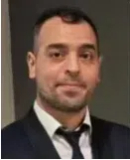
Prof. Karim RAGUI, Hangzhou International Innovation Institute of Beihang University, China
Bio: Dr. Karim RAGUI received his Double Ph.D. degree on Advanced Process Engineering from Paris-Saclay University, France, and University of Sciences and Technology, Algeria (2016). He was previously an Associate Professor in Paris-Saclay University and Sciences and Technology University (2016-2022), and Senior Researcher at Institute of Engineering Thermophysics, IET-CAS, China, (2022-2024). He served as Director of joint France-Algeria ...more...
Areas of Expertise: Supercritical fluid thermal system application for Carbon Neutrality (CCUS). Transport instabilities of Soot nanoparticles in porous media. Applied nanofluids/nano-materials for enhanced transfers. Clean energy based-low carbon emission.
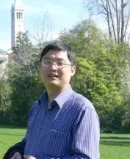
Prof. Lei Huang, School of Mathematics and Science, Shanghai Normal University, China
Shanghai Distinguished Professor, Oriental Scholar
Areas of Expertise: Cross-cutting areas related to low-dimensional physics and flexible electronics: carbon nanomaterials, nano-ionic devices, and integration of sensing and memory devices.
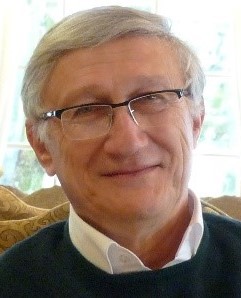
Prof. Antonio Pizzi, University of Lorraine, France
Bio: A. Pizzi is a professor emeritus of industrial chemistry at the University of Lorraine, DChem ([olymers, Rome, Italy), Ph.D. (organic chemistry, South Africa), and DSc (wood chemistry, South Africa). Experience gained in industry and research organizations allowed Dr. Pizzi to successfully serve as professor of polymer chemistry (1989–1995) and head of the Department of Chemistry (1991–1993) at the Witwatersrand University,...more...
Areas of Expertise: Bioadhesives and bioresins chemistry, formulation, and application
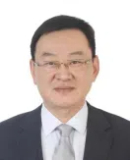
Prof. Wei Chen, School of Materials Science and Engineering, Zhejiang Sci-Tech University, China
National High-Level Talent;tenured professor (Full Professor) of the Hong Kong Polytechnic University, Stanford World Top 2% Scientists
Bio:Wei Chen,Professor, doctoral supervisor, national high-level talent; He used to be a tenured professor (Full Professor) of the Hong Kong Polytechnic University (ranked 65th in the QS global rankings), the chief researcher of the Institute of Intelligent Wearable Systems and the Carbon Strategy Research Center, and was selected as one of the top 2% scientists in the world (lifetime scientific influence). He is mainly engaged ...more...
Areas of Expertise: New fiber materials, flexible intelligent devices, intelligent system integration
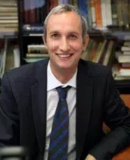
Prof. Blaž Likozar, National Institute of Chemistry, Department of Catalysis and Chemical Reaction Engineering, Slovenia
Areas of Expertise: Chemical (process) engineering, reactor and unit operation design and construction, as well as multi-scale process modelling. Our topics foremost include carbon dioxide and natural gas conversion, hydrogen and fuel cell technologies, biomass valorisation to bio-based compounds, and (bio)pharmaceutical processes.
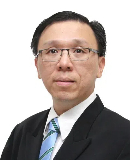
Prof. Chan Kah Yoong, Faculty of Engineering, Multimedia University, Malaysia
Areas of Expertise: Smart materials and devices including smart glasses/windows, solar cells, transparent electronic materials and devices, microelectronics and nanotechnology, IoT smart farming technologies, solar energy harvesting applications, and recent renewable green technologies as well as CO2 reduction technologies.
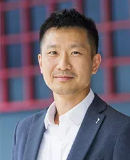
Assoc. Prof. HO Derek, Department of Materials Science and Engineering at City University of Hong Kong, China
Bio:Prof. Derek Ho is currently an associate professor at the Department of Materials Science and Engineering at City University of Hong Kong. He serves as co-principal investigator at the Hong Kong Centre for Cerebro-Cardiovascular Health Engineering, where he conducts translational research in multifunctional materials and devices for wearable medical electronics. Prof. Ho is also cross-appointed by the Department ...more...
Areas of Expertise: soft ionic-electronic materials and devices,focusing on two application areas: (i) sensors (mechanical, chemical, and biological) and (ii) electrochemical energy storage devices (e.g. flexible supercapacitors and batteries).
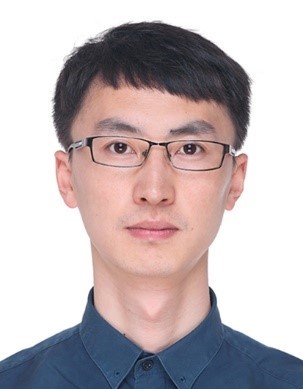
Assoc. Prof. Ziyang Lu, Jiangsu University
Dr. Ziyang Lu, Associate Professor, Doctoral Supervisor at Jiangsu University. He obtained his Ph.D. in Environmental Engineering from Jiangsu University in December 2015. His research focuses on environmental catalysis. He has published over 80 SCI-indexed papers with an H-index of 31, including 2 ESI Hot Papers, 10 ESI Highly Cited Papers, and more than 20 papers with an impact factor greater than 10. He is the first inventor of 13 authorized Chinese invention patents and has contributed to one monograph. In 2020, he was recognized as a "World's Top 2% Scientist" by Stanford University and a "Top 1% Highly Cited Author" by the Royal Society of Chemistry (RSC). He has received honors such as the Young Talent from the Jiangsu Association for Science and Technology. He is a recipient of 8 provincial/ministerial-level awards, including the Second Prize of Jilin Provincial Science and Technology Award.
Areas of Expertise: Environmental pollution control technology, Environmental protection engineering materials, Energy and environmental catalytic materials
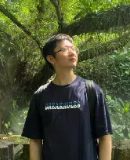
Assoc. Prof. Yifei Wang, School of Mechanical Engineering and automation, Harbin Institute of Technology, Shenzhen, China
Stanford World Top 2% Scientists (2022-2024)
Areas of Expertise: Hydrogen & fuel cell; Metal-air battery; Aqueous ion battery; Microfluidics in electrochemical energy conversion; Flexible and wearable energy device; Battery additive manufacture; Photocatalytic hydrogen production & VOC degradation
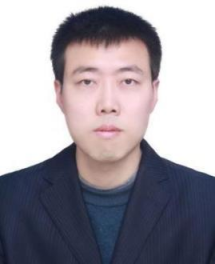
Assoc. Prof. Yang Li, Shihezi University, China
Bio: Yang Li received his bachelor's degree in pharmacy from Lanzhou University in 2011 under the tutorial of Professor Yingqian Liu. In 2017, he received his master’s degree in Nanophysics from Gachon University, South Korea, under the tutorship of Professor Eun-Cheol Lee. From 2017 to 2018, he worked as a research assistant under the supervision of Prof. Sam Hsu at City University of Hong Kong and Prof. Zhubing He at Southern University of Science and Technology. ...more...
Areas of Expertise: The exploration of the physical mechanism of perovskite solar cells and the preparation of efficient large-area flexible perovskite solar cells.
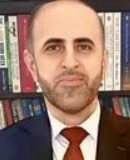
Prof. Azeez Abdullah Barzinjy, Soran University, Kurdistan Region, Iraq
Stanford World Top 2% Scientists in the Materials Science Field in 2023 and 2024
Bio: Prof Dr Azeez Abdullah Barzinjy: was born in Erbil-Iraq. He received his BSc. (Physics) and his 1st M.Sc. (Superconducting transmission line) from the University of Salahaddin-Erbil in 1998 and 2004, respectively. He did another M.Sc. (Theoretical Physics) in 2009 at Old Dominion University in USA. He completed his PhD (Materials Science) at the Materials Science centre, University of Leicester/UK in 2014. He is currently ...more...
Areas of Expertise: Green Synthesis of Nanoparticles, metal electroplating from novel ionic liquids and investigating their properties, solar selective coating, surface plasmon resonance and nanotechnology
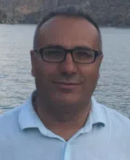
Prof. Müslüm Arıcı, Department of Mechanical Engineering, Kocaeli University, Turkey
Areas of Expertise: Mechanical Engineering, Energy, Fluid Mechanics, Energy storage technologies, Solar energy, Advanced Energy Technologies, Thermodynamics, Heat and Mass Transfer, Computational fluid dynamics, Engineering and Technology
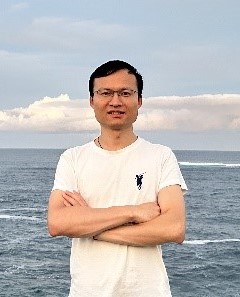
Researcher Zhijie Chen, UNSW Sydney, Australia
Bio: Dr. Zhijie Chen is a research associate at the Water Research Centre, School of Civil and Environmental Engineering, UNSW. He received his Ph.D. degree in Environmental Engineering from the University of Technology Sydney, Australia in 2022. His research mainly focuses on the development of green technology for achieving environmental and energy sustainability. ...more...
Areas of Expertise: The development of green technology for achieving environmental and energy sustainability
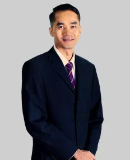
Asso. Prof. AZAM TAUFIK MOHD DIN, Engineering Campus, Universiti Sains Malaysia, Malaysia
Bio: Azam T. Mohd Din obtained a B.Eng. (Chemical Engineering) from Universiti Sains Malaysia in 2003 and an MSc in 2005. In 2014, he completed his PhD at the same institution under the supervision of Prof. Bassim H. Hameed on the synthesis and characterisation of ordered mesoporous materials for environmental remediation and product purification. His other research interests include gas adsorption and the removal of emerging contaminants (EC) for a sustainable environment.
Areas of Expertise: Adsorption, Activated Carbon, Wastewater Treatment, Ordered Mesoporous Materials, Pyrolysis, Co-Pyrolysis, Biomass, Biofuel, Reaction Engineering
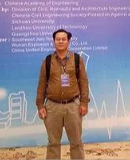
Prof. Ping Xiang, School of Civil Engineering, Central South University, China
Areas of Expertise: Computational Continuum Mechanics and Mathematics with Mesh-free methods; Steel reinforced concrete; Earthquake & Structures; Structure Mechanics and Design; Finite element methods; Multiscale modeling; atomistic-continuum modeling; Optical fiber technology in Civil & Structural Engineering; Structural Health monitoring; Biomechanics; Nano mechanics; Solid Mechanics; Numerical methods in engineering
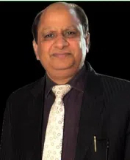
Prof. Tokeer Ahmad, Department of Chemistry, Jamia Millia Islamia, India
Stanford World Top 2% Scientists for consecutive five years since 2020
Bio: Prof. Tokeer Ahmad is graduated from IIT Roorkee and Ph.D. from IIT Delhi. Presently, he is full Professor at Department of Chemistry, Jamia Millia Islamia, New Delhi since 2019. Prof. Ahmad has supervised 16 PhD’s, 84 postgraduates, 10 projects, published 214 research papers, one patent and three books with research citation of 8935, h-index of 56 and i10-index ...more...
Areas of Expertise: Nanomaterials, Heterostructures; Nanocatalysis, Photocatalysis, Electrocatalysis, Photoelectrocatalysis, Water Splitting, H2 Energy and Gas Sensing
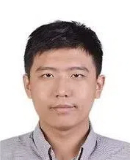
Assist. Prof. Wending Pan, Department of Mechanical Engineering at the University of Hong Kong, China
Bio: Dr. Wending Pan obtained his B.S. degree (2017) in Mechanics from the University of Science and Technology of China (USTC) and Ph.D. degree (2021) in Mechanical Engineering from the University of Hong Kong (HKU), under the supervision of Prof. Dennis Y.C. Leung. He continued his research as a Postdoctoral Fellow and currently a Research Assistant Professor in the Department of Mechanical Engineering at HKU.
Areas of Expertise: Aqueous ion batteries working mechanism, Advanced solid-state electrolytes, Multi-ion (de-)intercalation behaviors
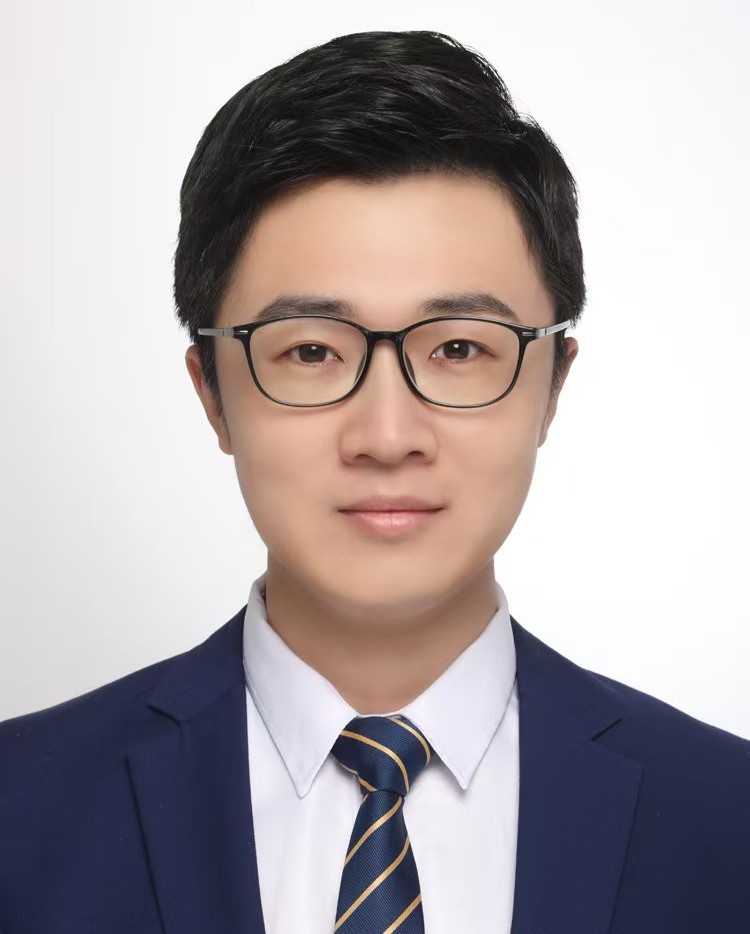
Axin Liang, Beijing Institute of Technology
Bio: Associate Researcher at Beijing Institute of Technology. Currently serves as Party Branch Secretary of the Research Institute at the School of Life Sciences, Beijing Institute of Technology; Member of the Medical Device Technology Innovation Committee of the China Technology Market Association; Member of the Chinese Society of Toxicology. Co-Editor-in-Chief of the Food Science and Human Wellness special issue; Editorial Board Member/Special Issue Editor of Food & Medicine Homology; Young Editorial Board Member of Interdisciplinary MEDICINE. Primarily engaged in the application of novel biosensing technologies in biomedical detection. He has led over 10 major research projects, including the National Key R&D Program, Space Station Space Science Experiment Program, Ministry of Industry and Information Technology Key Laboratory Project, Guangdong Provincial Key Field R&D Program, and large-scale corporate research collaborations. His team has published over 30 SCI papers in high-impact international journals such as Sci. Adv., Biosens. Bioelectron., Food Chem., Sensor. Actuat B-Chem. and other high-impact international journals, including 1 ESI Hot Paper and 1 ESI Highly Cited Paper. He has filed over 10 national invention patents. His students have won awards including the sole Gold Medal at the inaugural International Space Science and Payload Competition (international level) and the First Prize at the 8th National College Students Life Science Competition (Scientific Inquiry category, national level).
Bio: Development of novel biosensors and their application in detecting key components of environmental pollutants and energy materials; design of novel COF/MOF materials and their application in detecting pollutants in environmental media.
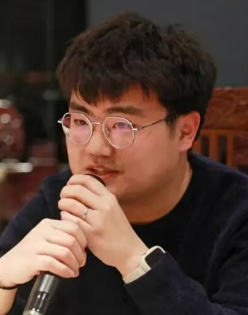
Xu Fan, Postdoctoral Researcher, Shenzhen Institute of Advanced Technology, University of Electronic Science and Technology of China
Bio: Xu Fan currently serves as Associate Researcher at the Advanced Research Institute of University of Electronic Science and Technology of China (Shenzhen) and Chief Technology Officer at Shuo Wei Optoelectronics. He is an external mentor at Northwestern Polytechnical University and Shenzhen-Moscow University. His additional roles include member of the Perovskite Standards Working Group under the China Photovoltaic Industry Association Standards Committee and member of the Youth Science Committee of the China Inspection and Testing Association. He concurrently holds positions as Young Editorial Board Member for Materials Futures, Sustainable Engineering Novit (SEn), Crystals, and Net Zero, as well as serving on the editorial boards of Green Chemistry and Sustainable Materials and Intelligent Development. She holds a Ph.D. from McMaster University and a Ph.D. from Peking University. Xu has published over 50 papers in journals including Energy & Environ. Sci., Adv. Mater., Joule, and Nano Letters, including multiple highly cited and hot papers. She has applied for over ten patents, co-authored four standards, and published one English monograph. Recipient of the 2024 Wiley China High Contributor Award and Canada's H.G. Hilton Award. His research on perovskite photovoltaic technology was recognized as a Science and Technology Demonstration Product under the National Key R&D Program of China's 14th Five-Year Plan. Selected for the Overseas Postdoctoral Talent Support Program and Yicheng Outstanding Talent Program.
Areas of Expertise: Semiconductor optoelectronic materials,Solar cells

Yang Li, Naval University of Engineering
Bio: Dr. Yang Li received his Ph. D of Optical Engineering from Wuhan National Laboratory for Optoelectronics (WNLO), Huazhong University of Science and Technology, and then he joined Naval University of Engineering as a lecturer. During Ph. D study, he started the academic research on pulsed laser fabrication functional nanomaterials in liquids, and their applications in photocatalytic degradation of organic pollutants. In recent years, he started the research on online spectroscopy monitoring technic in pulsed laser fabrication functional nanomaterials for improving the quality of laser-prepared products.
To date, he has published more than 30 papers in the SCIE cited journals, such as Journal of Advanced Research, Journal of Colloid and Interface Science, Journal of Power Source, and applied for more than 20 patents. They have been cited by many significant journals, such as the Chemical Reviews, Progress in Materials Science, Light: Science and Applications, and ACS Materials Letters. He also served as the reviewers for many SCIE cited journals, such as the Nanoscale, Journal of Analytical Atomic Spectroscopy, and Smart Materials and Structures.

Dr. Muhammad Shahbaz, Net Zero Industry Innovation Center, School of Computing, Engineering & Digital Technologies, Teesside University, Middlesbrough, UK
Bio: Dr. Muhammad Shahbaz, currently serving as a Vice Chancellor’s Research Fellow at the Net Zero Industry Innovation Center, School of Computing, Engineering & Digital Technologies, Teesside University, Middlesbrough, UK. He has more than 12 year tecahing and reserach experince Sweden, Malayisa, Qatar, Pakistan and UK. He has completd his post doc training Hamad Bin Khalifa Univerisity, ...more...
Areas of Expertise: Utilization of wastes for H2 and energy production; Thermal treatment systems (gasification, pyrolysis, and combustion); Energy system analysis and optimization; Sustainable chemical process design; Process simulation and modeling; Techno-economic evaluation and circular economy; Bioenergy CO2 capture, storage, and utilization (BECCS/U)